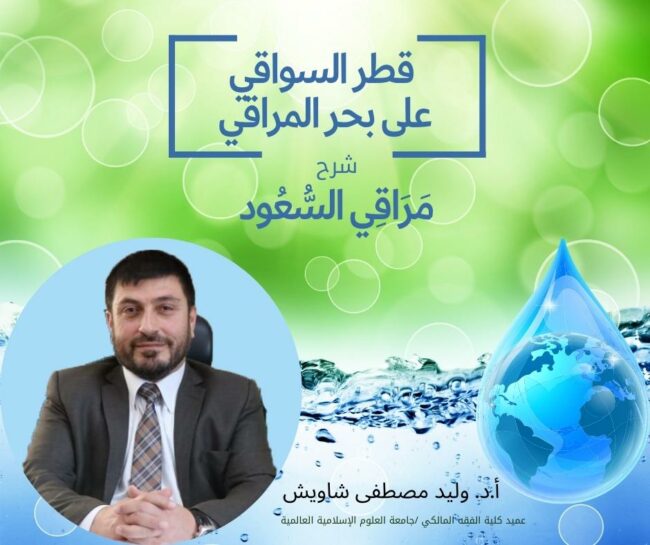التمهيد:
أكدت أن الذكاء الصناعي يعمل بخوارزميات يعتبر مراد المتكلم فيها غيبا، وأن الخوازميات تبحث في المجموعات الكلامية المتداولة، وفي حال لم تلقم الشبكة بالألفاظ فلا يمكن للخوارزميات أن تصل للمعنى البتة، وأجريت تجربة على ذلك بحيث آتي بمثال غريب طريف من تعبيرات الناس لكنه غير ملقم للشبكة، وفيما يأتي السؤال وبعدها الجواب بالذكاء الصناعي (ChatGPT).
أولا: السؤال:
سألته:اشرح لي الجملة الآتية: سأل خالد عن صديقه أحمد الذي أرهقته الديون: فقيل له إن أحمد باع جرة الغاز، اخترت هذا السؤال لأبين أن فلسفةاللغة المعاصرة تضيق على مراد المتكلم وتتوسع في دلالة الوضع، وهي دلالة الجملة على المعنى باعتبار صورة الجملة ووضعها اللغوي، لا باعتبار مراد المتكلم، إذ مقصود المتكلم المبالغة في سوء حالة أحمد الذي أرهقته الديون، بأنه باع كل ما عنده حتى باع جرة الغاز التي يطبخ عليها طعامه، وهو من أشد المبالغة في التعبير عن الضيق المالي، ولكن أفتاني الذكاء الصناعي بهذا الجواب، الذي لا علاقة له بمراد المتكلم نهائيا، لأنه قائم على رؤية فلسفية في اللغة، وهي أن بناء اللغة كبناء الطبيعة حقيقة واحدة وليس فيها ثنائية الوضع والاستعمال:
ثانيا: الجواب:
The sentence consists of two clauses, separated by a colon (:). The first clause is: سأل خالد عن صديقه أحمد الذي أرهقته الديون (Khaled asked about his friend Ahmed who was burdened by debts). The second clause is: فقيل له إن أحمد باع جرة الغاز (he was told that Ahmed sold the gas cylinder).
The first clause has the following structure:
– The subject (فاعل) is خالد (Khaled), which is a proper noun and a masculine singular noun.
– The verb (فعل) is سأل (asked), which is a past tense verb and agrees with the subject in number and gender. It also has a hamza (ء) at the beginning, which indicates that it is a verb of wonder or inquiry.
– The object (مفعول به) is عن صديقه أحمد (about his friend Ahmed), which consists of a preposition عن (about), a possessive pronoun suffix ه (his), and a noun phrase صديقه أحمد (friend Ahmed). The noun phrase has an idafa construction, where the first noun صديق (friend) is modified by the second noun أحمد (Ahmed). The first noun also agrees with the possessive pronoun suffix in number and gender.
– The relative clause (جملة اسمية موصولة) is الذي أرهقته الديون (who was burdened by debts), which modifies the noun phrase صديقه أحمد (friend Ahmed). The relative clause has the following structure:
– The relative pronoun (اسم موصول) is الذي (who), which agrees with the antecedent صديقه أحمد (friend Ahmed) in number and gender. It also has an alif lam (ال) at the beginning, which indicates that it is a definite relative pronoun.
– The verb (فعل) is أرهقته (burdened him), which is a past tense verb and agrees with the subject الديون (debts) in number and gender. It also has a direct object pronoun suffix ه (him), which refers back to the antecedent صديقه أحمد (friend Ahmed).
– The subject (فاعل) is الديون (debts), which is a definite plural noun and has an alif lam (ال) at the beginning.
The second clause has the following structure:
– The conjunction (حرف عطف) is ف (then), which connects the second clause to the first clause and indicates a sequence of events.
– The verb (فعل) is قيل له (he was told), which is a passive voice verb and agrees with the implicit subject هو (he) in number and gender. It also has a preposition ل (to) and an indirect object pronoun suffix ه (him), which refer to خالد (Khaled).
– The complement (خبر) is إن أحمد باع جرة الغاز (that Ahmed sold the gas cylinder), which consists of a particle إن (that), a subject أحمد (Ahmed), and a predicate باع جرة الغاز (sold the gas cylinder). The predicate has the following structure:
– The verb (فعل) is باع (sold), which is a past tense verb and agrees with the subject in number and gender.
– The object (مفعول به) is جرة الغاز (the gas cylinder), which consists of a noun جرة (cylinder) and an adjective الغاز(gas). The adjective agrees with the noun in number, gender, and definiteness. The noun also has an alif lam(ال) at the beginning, which indicates that it is a definite noun.
I hope this explanation helps you understand the sentence better. 😊
الخلاصة:
يمكن للإنسان الطبيعي أن يدرك الاستعمال المجازي والكنائي وإن لم يكن ذلك مسجلا في الذاكرة سابقا، بل إن المستحسن إذا كان الاستعمال غير المسبوق، بينما لا يمكن للذكاء الصناعي أن يقع منها الانفعال والمعنى، وستبقى فلسفة فتنشتاين والتحجر على الوضع وإلغاء الشرع والتضييق عليه ضمن فلسفة الطبيعة.
الطريق إلى السنة إجباري
الكسر في الأصول لا يَنْجبِر
عبد ربه وأسير ذنبه
أ.د وليد مصطفى شاويش
عَمان الرباط
18 -صفر-1445
4-9-2023

